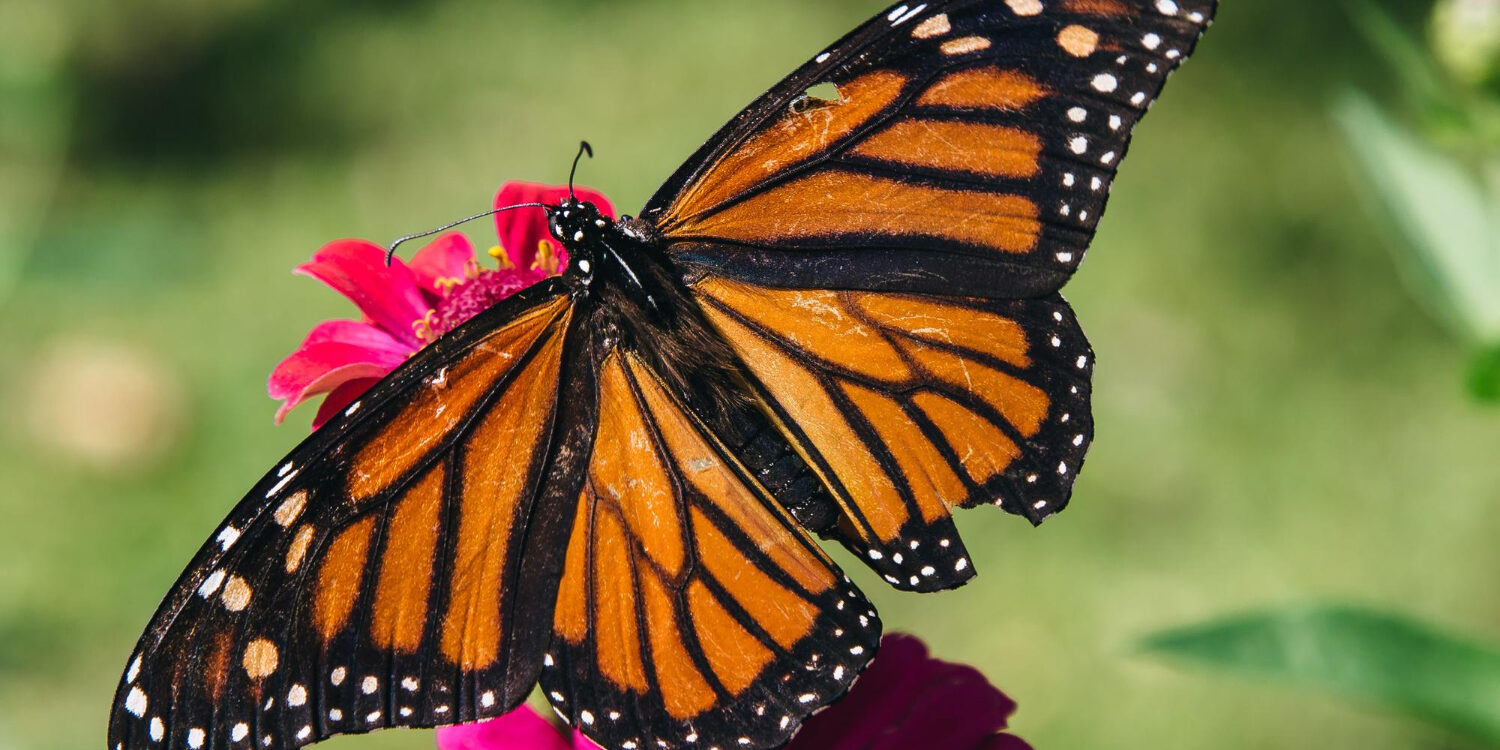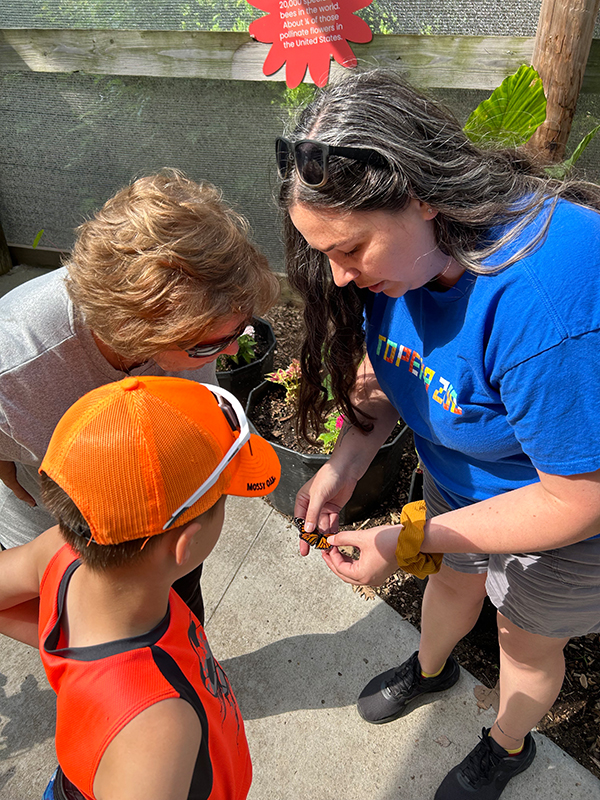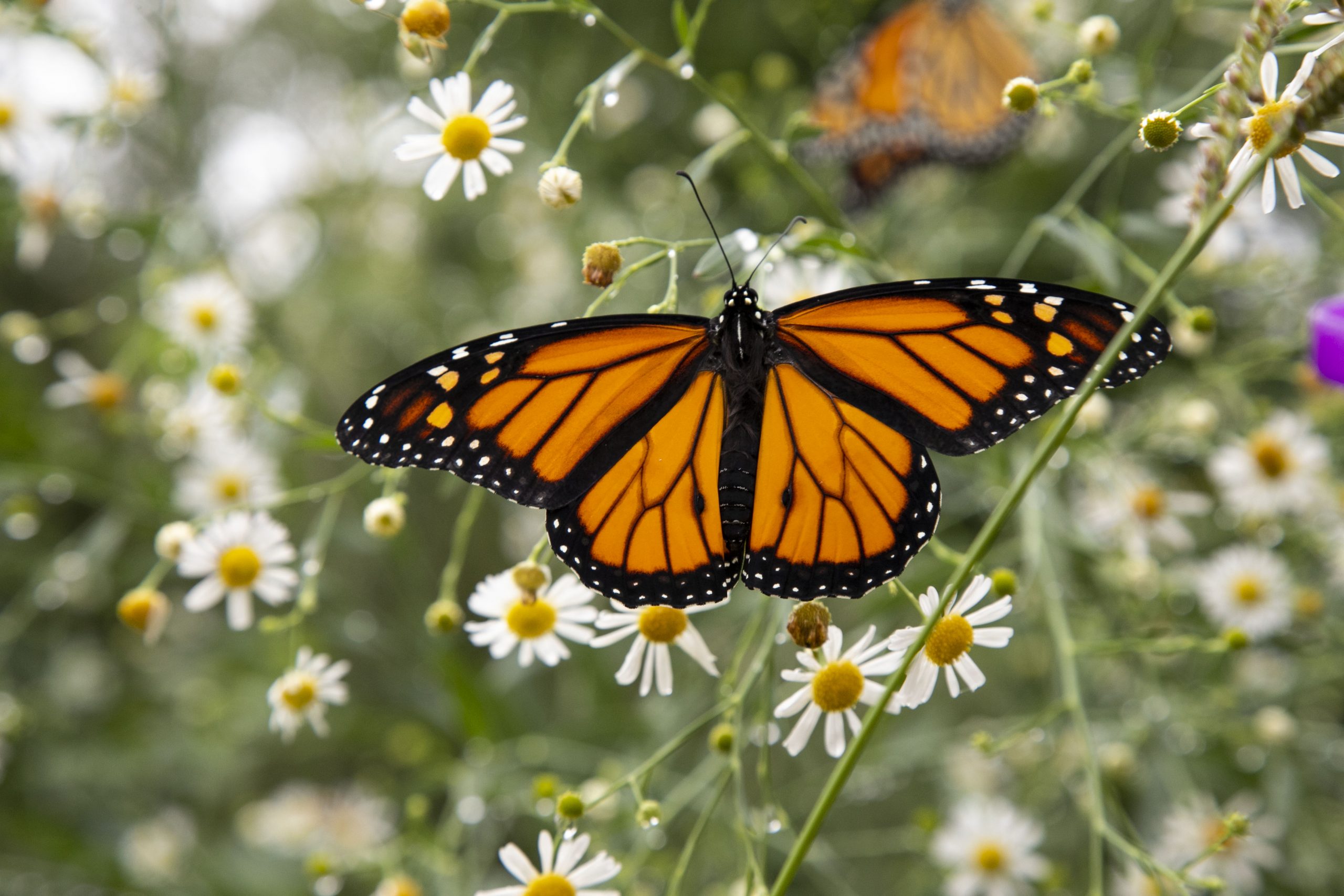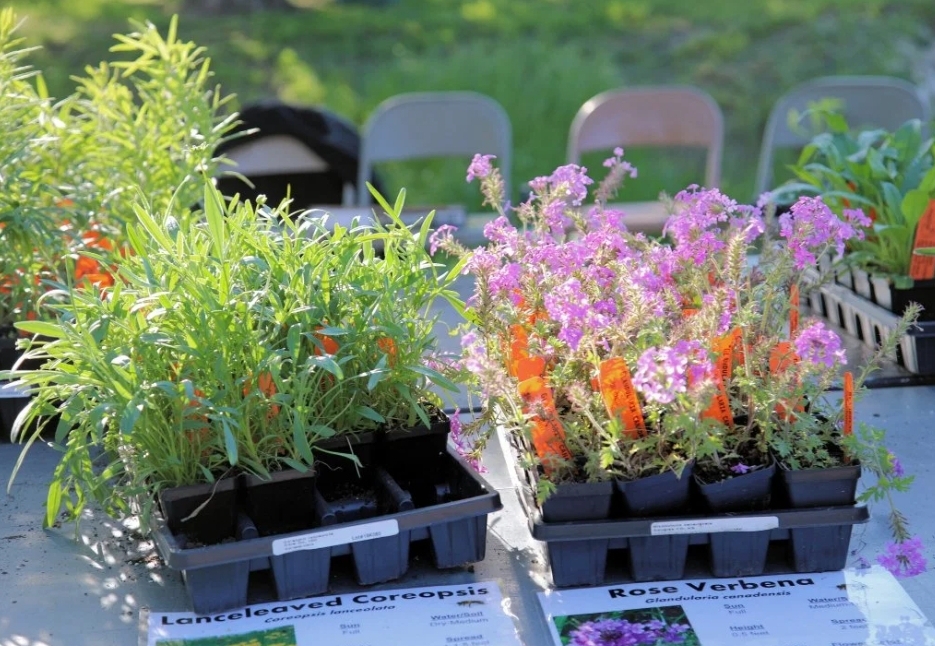Pollinators in the United States have been facing a crisis for nearly two decades, and their decline is a growing global issue. Habitat loss, pesticides, parasites, invasive species, and climate change have all contributed to the rapid decline of these vital species. Despite their crucial role, pollinators continue to face significant threats.
Pollinators are essential to life as we know it. Over 85% of all flowering plants rely on animals for pollination, including many of the crops that sustain our food supply. In fact, one out of every three bites of food we eat is directly linked to the work of pollinators. With over a thousand plants critical to our food, medicine, and daily life depending entirely on pollinators, it is crucial that we take action to support these incredible creatures in the wild.

Monarch Conservation at the Topeka Zoo
With its striking orange and black wings, the Monarch butterfly is North America's most iconic butterfly species. Notably, Monarchs are the only insects known to undertake a two-way migration. Each year, starting in mid-August, Monarchs travel south from as far north as Canada to their overwintering grounds in central Mexico. They return north each spring, completing one of nature's most remarkable journeys. Unfortunately, in recent years, this migration has dramatically declined.
In the 1990s, Monarch populations in North America numbered around 700 million, but in the last three decades, those numbers have plummeted by more than 90%. The decline is largely due to the loss of milkweed (their primary egg-laying plant) and nectar-producing flowers, as well as the harmful effects of pesticides and climate change. The Topeka Zoo is actively involved in efforts to protect Monarchs and ensure their future.

How the Topeka Zoo is Helping Monarchs
The Topeka Zoo is deeply committed to supporting Monarchs and their remarkable migration in a variety of ways:
- Creating Monarch-Friendly Habitats: The zoo maintains approximately 42,000 square feet of native plant space designed to support Monarchs.
- Planting Milkweed: Each year, the zoo plants milkweed, the primary plant where Monarchs lay their eggs, along with native flowers that provide crucial nectar for feeding.
- Annual Native Plant Sale: The zoo hosts an annual spring sale to promote the planting of Monarch-friendly species across the community, increasing both egg-laying plants and food sources.
- Monarch Tagging Program: The zoo participates in international Monarch tagging activities, especially as the migration passes through northeastern Kansas. This scientific work helps gather valuable data that guides future conservation efforts.
- Monarch Waystations Project: In partnership with Shawnee County Schools, the zoo sponsors the creation of Monarch Waystations—gardens planted with Monarch-friendly plants—at schools throughout the county.
Our Conservation Commitment:
The Topeka Zoo is dedicated to supporting pollinators and their habitats through a variety of efforts:
Restoring Native Prairies
Since 2010, the zoo has been working to restore native prairies, ensuring they are pollinator friendly.
Re-seeding and Planting
The zoo has re-seeded large areas both on- and off-site with native flowering plants that provide essential food for pollinators.
Pollination Education
We maintain a Pollination Education Station, raising awareness about the importance of pollinators and what individuals can do to help
All-Season Plantings & Lifecycle Support
The zoo plants native flowering species that bloom throughout spring, summer, and fall, providing year-round food sources for pollinators. These plantings support both the caterpillar and adult stages, offering essential nourishment at various developmental stages.
Bee and Hummingbird Habitats
The zoo houses a large Bee Hotel to protect native bee species and provides hummingbird feeders for these important pollinators. Additionally, the zoo cares for active bee hives on-site, supporting the health and stability of local bee populations.
Native Plant Sale
Every year, the zoo hosts a Native Flowering Plant Sale, providing thousands of pollinator-friendly plants to the community in northeastern Kansas
Pollinator Palooza
The zoo celebrates pollinators annually with a fun and educational Pollinator Palooza event, helping the public understand the many ways they can assist pollinator populations.

Topeka Zoo Citizen Science Program
Monarch Butterfly Tagging Classes
Monarch butterfly populations have declined by close to 90% in the last few decades. These beautiful insects migrate through Kansas during the last two weeks of September and we are waiting for them! Join to Topeka Zoo as we offer in-person education and tagging classes!

Monarch Watch
The Monarch Watch program is a nonprofit education, conservation, and research initiative based at the University of Kansas that focuses on the monarch butterfly, its habitat, and the fall migration. They coordinate a large-scale tagging program to track monarch butterflies and promote conservation efforts through initiatives like the Monarch Waystation program.

Native Pollinator Plantings
We take pride in preserving and showcasing the native flora of the region, from colorful wildflowers to majestic trees, these plants are not only beautiful but also play a vital role in supporting local ecosystems. The Topeka Zoo has a storied past that dates back almost a century with the vision of creating unique spaces that combines education with the wonder of a zoo.
Join the Fight to Save Endangered Species
Together, we can make a difference. By supporting Topeka Zoo’s SAFE initiatives, you’re helping protect vulnerable species, restore habitats, and ensure a future where wildlife can thrive. Join us in taking action today!
